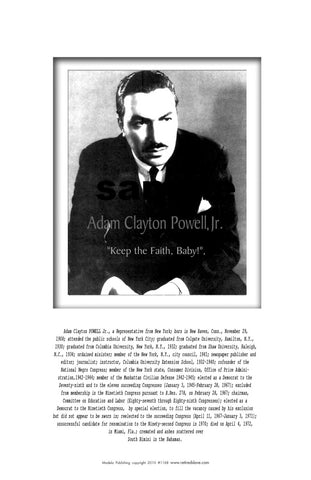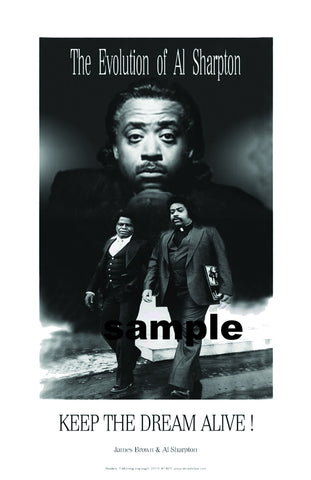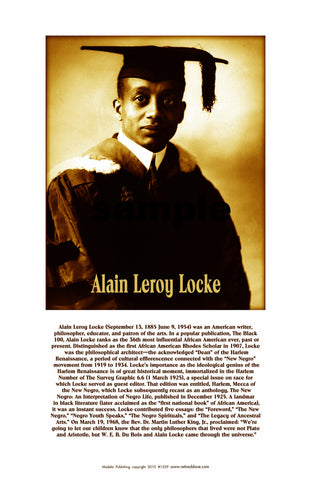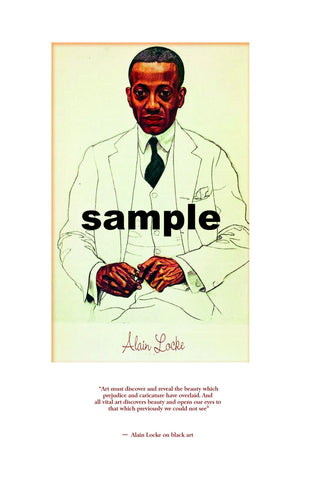Langston Hughes #1390
$ 8.00
Caption from poster__
Langston Hughes
I speak in the name of the black millions
Awakening to action.
Let all others keep silent a moment
I have this word to bring,
This thing to say,
This song to sing:
Bitter was the day
When I bowed my back
Beneath the slaver's whip.
That day is past.
Bitter was the day
When I saw my children unschooled,
My young men without a voice in the world,
My women taken as the body-toys
Of a thieving people.
That day is past.
Bitter was the day, I say,
When the lyncher's rope
Hung about my neck,
And the fire scorched my feet,
And the oppressors had no pity,
And only in the sorrow songs
Relief was found.
That day is past.
I know full well now
Only my own hands,
Dark as the earth,
Can make my earth-dark body free.
O thieves, exploiters, killers,
No longer shall you say
With arrogant eyes and scornful lips
Poet, writer, playwright. Born February 1, 1902 in Joplin, Missouri. After publishing his first poem, "The Negro Speaks of Rivers" (1921), he attended Columbia University (1921), but left after one year to work on a freighter, travelling to Africa, living in Paris and Rome, and supporting himself with odd jobs. After his poetry was promoted by Vachel Linday, he attended Lincoln University (1925–9), and while there his first book of poems, The Weary Blues (1926), launched his career as a writer. As one of the founders of the cultural movement known as the Harlem Renaissance, which he practically defined in his essay, "The Negro Artist and the Radical Mountain" (1926), he was innovative in his use of jazz rhythms and dialect to depict the life of urban blacks in his poetry, stories, and plays. Having provided the lyrics for the musical Street Scene (1947) and the play that inspired the opera Troubled Island (1949), in the 1960s he returned to the stage with works that drew on black gospel music, such as Black Nativity (1961). A prolific writer for four decades, he abandoned the Marxism of his youth, but never gave up protesting the injustices committed against his fellow African Americans. Among his most popular creations was Jesse B Semple, better known as "Simple,"a black Everyman featured in the syndicated column he began in 1942 for the Chicago Defender. In his later years, Hughes completed a two-volume autobiography and edited anthologies and pictorial volumes. Because he often employed humour and seldom portrayed or endorsed violent confrontations, he was for some years disregarded as a model by black writers, but by the 1980s he was being reappraised and was newly appreciated as a significant voice of African-Americans.




